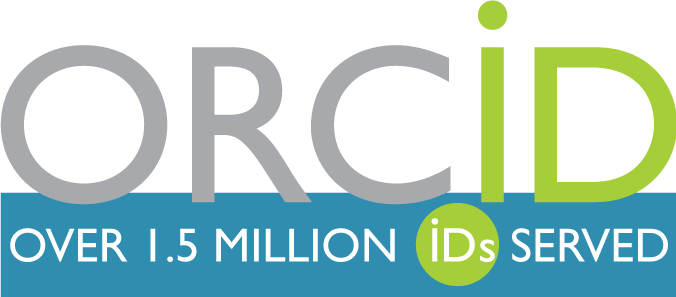 Over the past few weeks, we’ve been analyzing the results of our recent survey on perceptions and understanding of ORCID within the global scholarly community, and have just published our final report, together with the anonymized data. We were delighted that so many people responded to the survey – close to 6,000, of whom nearly two thirds (62%) completed it – and we are very grateful for this expression of support from the community.
Over the past few weeks, we’ve been analyzing the results of our recent survey on perceptions and understanding of ORCID within the global scholarly community, and have just published our final report, together with the anonymized data. We were delighted that so many people responded to the survey – close to 6,000, of whom nearly two thirds (62%) completed it – and we are very grateful for this expression of support from the community.
So, what did we learn? While most of the results broadly confirmed many of our expectations, there were also some surprises.
For example, we didn’t expect there would be such strong support for mandating ORCID – a full 72% of respondents believe that ORCID mandates would be good for the global research community, with 21% neutral, and only 7% disagreeing or strongly disagreeing. When asked a simple yes or no question about mandates by various types of organization, the percentage supporting publisher mandates, specifically, is even higher at 75%; support for mandates by funders and institutions (both 67%) and scholarly societies (64%), though not as great, is still high. However, there was significant variation in support for mandates between respondents who have an ORCID iD (an average of 75% support) versus those who don’t (52%), perhaps indicating that researchers are more likely to see the value in widespread ORCID use once they have their own iD. This may also explain the apparent lack of support for mandates by physical scientists (59% compared with 72% across all other disciplines); that group is largely represented by American Geophysical Union members, more of whom haven’t yet registered for an iD (44% compared with an average of 58% overall).
There are also different levels of support by region, and job sector/title. Researchers in Africa (80-89% in favor of mandates for different organization types), and Latin America (79-82%) are especially supportive, while their counterparts in North America (52%) are much less so). Similarly, librarians (89%) are most likely to favor mandates, as are students (78% compared with 68% of respondents in other teaching and learning roles). In fact, a number of institutions already require researchers to use an ORCID iD in one or more systems; several funders have implemented or announced ORCID mandates in the last year or so; and last week, the Royal Society announced that, from January 2016, it would be requiring ORCID iDs for its authors. So, while we still have work to do in terms of winning hearts and minds among some groups, there’s an unexpectedly high level of support for ORCID mandates across the scholarly community overall.
Another pleasant surprise was that the top reason given by ORCID record holders for getting their iD was “I want the Internet to work better and persistent identifiers (PIDs) are the way to go.” Admittedly this group may be more altruistic than some but, nevertheless, we are delighted that so many respondents understand that persistent identifiers, such as ORCID iDs, play a critical role in supporting the research infrastructure. We will be working with other PID organizations in the coming months to further raise awareness of this.
Less welcome was the revelation that, while 58% of all respondents know they have an ORCID iD, 28% of iD holders are unfamiliar or “don’t know about ORCID at all.” While we can speculate about the reasons for this (researchers whose institution assigned ORCID iDs to them under our old Batch Create process, rather than encouraging them to claim their own iD; or who signed up for a particular purpose, such as submitting a manuscript, and promptly forgot about it), the important learning point for ORCID is that we must do a better job of engaging with our iD holders. We need to ensure they understand not only why to get an iD but also why, how, and when to use it. Having said that, there is high awareness of ORCID in certain groups, for example, in the UK 76% of respondents are very or somewhat aware of ORCID; in Australasia, 71%. This is likely a result of strong national engagement and support through the Jisc (UK) and AAF (Australia) consortia. (It would be interesting to see if the same is true in Italy, where Cineca has a national agreement with ORCID, but we don’t have data at country level in Europe outside of the UK.) Awareness among librarians (89%) and publishers (77%) is also higher than average – unsurprisingly, since their roles typically require good knowledge of industry initiatives.
There were also some interesting findings by discipline, region, and sector/job role. Some are less surprising – for example, it makes sense that researchers in Africa, Asia, and Latin America are more concerned about misattribution of their work than many of their colleagues in other regions. Name ambiguity is a huge problem in countries like Korea (where half the population shares one of five last names) or Latin American countries, where multiple family names are the norm. But we hadn’t predicted that researchers in health and medical sciences would share this concern. And while librarians’ high level of support for ORCID mandates may reflect their understanding of the importance of a strong research infrastructure, why are students also 10% more likely to support mandates compared with others in teaching and learning roles?
These are just a few of the questions we’ll be grappling with in the coming months as we work to both develop a better understanding of how the scholarly community currently perceives and understands ORCID, and to adjust our communications to address specific areas of confusion and misunderstanding. Some of the apparent discrepancies may be a result of disparities in sample sizes, such as an over-representation of physical sciences (41% of respondents), largely as a result of the AGU actively promoting the survey to its members. In contrast, just 5% of respondents work in the humanities. Similarly Western Europe (36%) and North America (29%) are both over-represented in the results, while responses from Africa, Australasia, Latin America, and the Middle East are all broadly in line with the proportion of researchers working in each region, and Asia and Eastern Europe are under-represented.
We plan to contact some of the 1,500+ respondents who are willing to be contacted about future ORCID market research for a deeper dive into some of the results in hopes of gaining additional insights. And, of course, we welcome any other feedback from Scholarly Kitchen readers and the community at large!
Discussion
16 Thoughts on "All about ORCID"
Great: In addition to arXiv, SSRN, ResearchGate, etc., yet another set of passwords and user names I will need to remember …
Actually Enrique, the whole point about ORCID is that it isn’t like those other systems, instead it’s a unique identifier that works across other systems and platforms – so, for example, you can already connect your arXiv and SSRN accounts with your ORCID iD. And increasingly it’s possible to use your ORCID iD as a single sign-on that works across multiple systems and profiles. For example, many publishers are now enabling single sign-on across journals at manuscript submission. These sorts of examples are becoming more common as more organizations implement ORCID.
So: https://xkcd.com/927/ ?
AGU may have unwittingly messed up your survey a bit. My understanding (which may no longer be true) is that anyone subscribing to their news magazine EOS becomes a member. If so then they may have a lot of members who are not researchers and thus little interest in ORCID. Mind you this is just a conjecture.
And, the saga continues…with an ORCID you are well served; once hijacked somewhere your are hijacked everywhere!
Sorry, but this is a biased promotion for ORCID.
No thanks. I am not an advertisable product for ORCID, researchgate or any other obsolete pseudo service provider…
You have right to gain money but not with my name, sorry. I won’t be an ORCID ‘number’…
Huh. Interesting. You do realize that ORCID is a non-profit, open, community-based effort, right?
I’m with you on ResearchGate though, which is an entirely different beast.
Do you think that organizations do really pay something without counterpart? without benefits in return?
It is ‘free’ for individuals but not free for organizations. Read this (from ORCID website):
“Individuals may use ORCID services freely. ORCID membership is open to any organization interested in integrating ORCID identifiers. All member fees are used to sustain and develop ORCID for the benefit of the research community” !
This is the same principle as advertisers in mass media.
Maybe ORCID could be more ‘useful’ and transparent than researchgate but it seems just as another bazaar as researchagte, facebook, etc.
As part of a member organization, we pay because we think it’s a valuable cause to support, because it’s a useful tool for our readers/authors, because it simplifies the work we need to do and because it allows us to do new things. We do not expect to make any money from the use of ORCID, other than perhaps some cost savings in having easier to manage back end systems.
And again, there is a difference between a not-for-profit effort, run by the resesarch community itself, and the sorts of venture capital, for-profit driven companies you compare it to. ORCID exists to serve the community that created it, the others exist to put money in the bank accounts of investors. ORCID is supported by member organizations, ResearchGate and Facebook are supported by ad sales and by selling data on their users to other corporations. There is a fundamental difference that is glaringly obvious.
Note also that ORCID id’s are required for grant recipients for several major funding agencies, a practice which is likely to expand greatly over the next few years.
And again, there is a difference between a not-for-profit effort, run by the resesarch community itself, and the sorts of venture capital, for-profit driven companies you compare it to.
I cannot help but note that, per its 2014 Form 990 (PDF), 47% of ORCID’s revenue went to the compensation of three individuals.
And again, there is a difference between a not-for-profit effort, run by the resesarch community itself, and the sorts of venture capital, for-profit driven companies you compare it to.
ORCHID is run by ORCHID: From the 2014 Form 990, there were 14 directors, and 47% of revenue went to the compensation of three individuals.
I’m not really sure what your point is. If you want to accomplish something, particularly something as difficult and important as ORCID (no H) is trying to do, then you have to hire talented people and pay them a reasonable wage. Hoping a global organization will just happen with volunteer labor is unrealistic. Do you think the people running ORCID are being over-compensated? A quick look at their 990 forms compared to other not for profits like PLOS or CrossRef shows that ORCID’s leadership is being paid about 60% of what the leaders at CrossRef are earning, and less than half of what PLOS pays their leaders. It would seem to me that, if anything, ORCID is being relatively thrifty in this regard.
Well, the sample is biased to people who are interested in ORCID, so of course the responses are wackily pro-ORCID. Of course, if they’d asked me, my response wouldn’t have been any good anyways, once they’d removed the cursing, it’d only be punctuation.
I can’t see hijacking as a serious concern. Who wants to spoof your account with some purposeless bureaucracy? Are they going to write and submit papers for you? It’s frustrating, of course, having to go through the hassle of resetting your password (or registering a new account) every time some clueless publisher thinks ORCID is going to make life easier (perhaps it does by shifting admin work to the authors?) Few people have read https://www.uie.com/articles/three_hund_million_button/ who need to.



